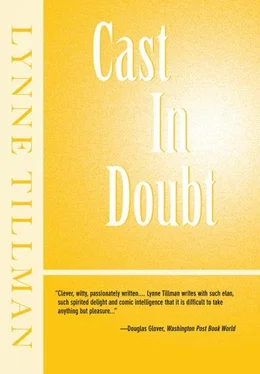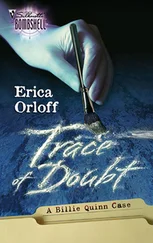How does one escape from these awkward social patches — should I stop beating around the bush and reveal ingenuously: I want you, John, or Gwen wants you, or let’s be adults, or let’s be children, as we are anyway, inevitably, all children. Surely, I caution myself mentally, to do so — that way lies madness. I drink another glass of retsina. Such a vulgar wine, so raw and crude, so right, so shocking. Retsina is blatant, not reticent, and how I wish I were capable of a flagrant display! Silence, ordinary sweet empty full silence, is intolerable in the moment. Anything would be better. A scream, a cat in heat, an off-key tune…
What is happening back home? I ask, innocently enough. What horrible events am I missing, what terrible things has Ford done lately? Who is this man Carter? The Peanut farmer has found favor with John, it seems, but Gwen refers to him as a cracker. They are off on a discussion of the Mafia, and how Sam Giancana was slain. He was tied to the CIA, and his murder, Gwen says, happened fast upon the heels of the revelation that the CIA was spying domestically, under Nixon’s orders, and so forth, so Giancana must have been implicated. John seems impressed by Gwen’s deduction, which I too think is clever, as I hadn’t thought it.
I once remarked to Roger, when he and I had — and it is a rarity — the same thought: Great minds think alike, Roger. He quickly countered: And small ones. Even now that makes me laugh. Roger isn’t all bad. No one is. Perhaps evil despots, but they…I am muddied by drink, muddled, that is, I can’t focus and think. I study Gwen, who absorbs me into her and absorbs this scene into her as if it were already seen, and I think I understand better the term scenemaker. Suddenly I realize that since she’s arrived my thoughts have been mostly taken up with her, and with John, and not actively with Helen, which is all right, I know, and perhaps wholesome. And yet, I have been thrown off the track of Helen, with whom I was engaged in something lively and new, I think, and I know she is angry with me, disappointed or whatever, like my mother, and she has disappeared. Helen has. My mother is dead. I would have hunted her down by now had Gwen not arrived.
I must find Helen. If she is not out of town, why did she not answer my note?
Drunkenly I think: Gwen stands in my way. She may have arrived here, she has arrived here, perhaps, in order to disrupt the progress of this story, its particular chain of thought, and its fascination, though that may be to the good. Or it may not be. But that is much too teleological. And why is it either one or the other, good or bad, with purpose or without? An old friend comes again into one’s life and one must adjust to the changes she brings. After all, I wanted her here. And now, in a way, I don’t. Is it because of John? John is captivating; it is hard for me to take my eyes from him, as from a mirror that reflects dully so one keeps staring, and still one can’t perceive one’s image with any exactitude.
If I were to arrive with him at Helen’s door, wherever that may be, she would not like it. In a thousand ways she has made it plain that she doesn’t want to see him, and how or why could I think otherwise. I must go by myself. But if I do leave, I know that Gwen and John will be thrown together, left to their own devices, and certainly I cannot count on Alicia to stand in their way. Gwen is cunning and may be treacherous. John is not mine, surely, so how could her desire for him be construed as a betrayal of me? Unless she were my enemy — a horrific thought, one of the saddest I have ever had, or ever had in a long, long time. It’s the wine dementing me, demeaning me, soliciting demons to play louche tricks. They soak in a senseless alcohol-sodden brain.
In reality, though reality is, especially in my condition, debatable, Gwen deserves John. She can — ought to — have him; age before beauty. No, no, the other way around; in our case, beauty before age. Though Gwen is not quite beautiful but handsome. Also she is my guest, and I intend always to be a good host. It is an image I hold of myself, the gracious host, which must be maintained, I feel, as if civilization itself depended on it, and it may, actually.
Even now I am neglecting my duties. Hurriedly I open another bottle and pour us all more to drink. I have no food to serve them which I’m sure Gwen has already registered — Horace is starving us, she’s thinking. I laugh out loud; it’s amusing to think I might be purposely depriving them and that I wish them to die of starvation. They are quite thin already. It wouldn’t take much to starve them. It is an interesting idea, one that might be useful. Someone could be holding them prisoner, they might be sex prisoners, love slaves, that kind of thing. Perhaps captives of a de Sade-type character, who lives in New Jersey or Connecticut, some unlikely locale, and they are bound together by his insanity, even manacled together in his faux-medieval fort. The neighbors never suspected, they would say, clucking nonsensically as they viewed the bodies being wheeled out from the dungeonlike cellar. I must for that down later.
Now John and Gwen are discussing Jackie Onassis and Angie Dickinson, and the Andrews Sisters, of all things, molls, and their gangsters. Can Jackie Kennedy Onassis really be thought of as a moll? I ask. Such a well-brought-up woman? Gwen makes light of this, having seen many too many well-brought-up young women go to pieces, all the crowd around Warhol — Drella, she calls him — and she knows how these women trade, on a grand scale, their sexual favors and beauty, jockeying for better position and greater financial security. Gwen reports that the just-married Jackie Kennedy, when asked if she was madly in love with then Senator Kennedy, answered the newsman, No. Incredulous, he asked her again, and she repeated, No. Did she really, Gwen, I ask, did she really say that on camera? Yes, she did, I have it from a good source. Gwen has good sources.
I must admit I’m shocked, I rather like Jackie, and even approved of her marriage to Onassis. I can see how she’d like an older man. I am an older man, I’m thinking. I may be slurring my words, but what does it matter. What about Callas? John asks. Jackie marrying Onassis screwed her up, right? I’m astonished. This can’t be my rock-and-roller John speaking, not about the diva Maria — it is Alicia speaking through young John. She is mad about Callas.
Hungry? I ask them. Shall we dine? Or dance? I mime a tango and mince around the room. Gwen joins in. I love Gwen. I hate myself for ever thinking her a disruption. Though she is. And so are John and Helen. Life disrupts life. I am getting little to nothing done, it’s true. But the dance is life, and life is a dance, and life is a short dance, and oh, I am silly, and on and on. I whirl wildly about the room, as if I hadn’t a care in the world, and right now I don’t feel I do have a care in the world, only what I wish to care about. I do not wish for anything to care about. I am shockingly free. Free. Fancy-free. I come to a halt, throw my head back and pretend to strip off long evening gloves like those worn by Rita Hayworth in Gilda . Gwen roars with laughter and curtsies before me, her king or queen. It is as if she had been presented before royalty countless times. And even to think of countless times, of the ages of human existence, makes me sigh. I feel weak, I weaken before that august history, weaken before Gwen. I return her curtsy, and her courtesy, and snap the long invisible gloves in the air for emphasis, as if the gloves were designed as punctuation marks — periods or exclamation marks — and were oh so necessary to the sense of my performance.
John probably has no idea what I’m doing. For his sake I ought to have imitated Mick Jagger. It is for his sake I am dancing the tango of the gloves, is it not? For whose sake then am I dancing? Does one commit mischievous acts for oneself or another? Murder, a tango, a striptease. How I wish my body were beautiful! I toss myself here and there, hither, thither, and yon. My ecstatic positions are ephemeral, sublime, ludicrous, but they do have a logic, even if it is only internal. They make sense to me.
Читать дальше












